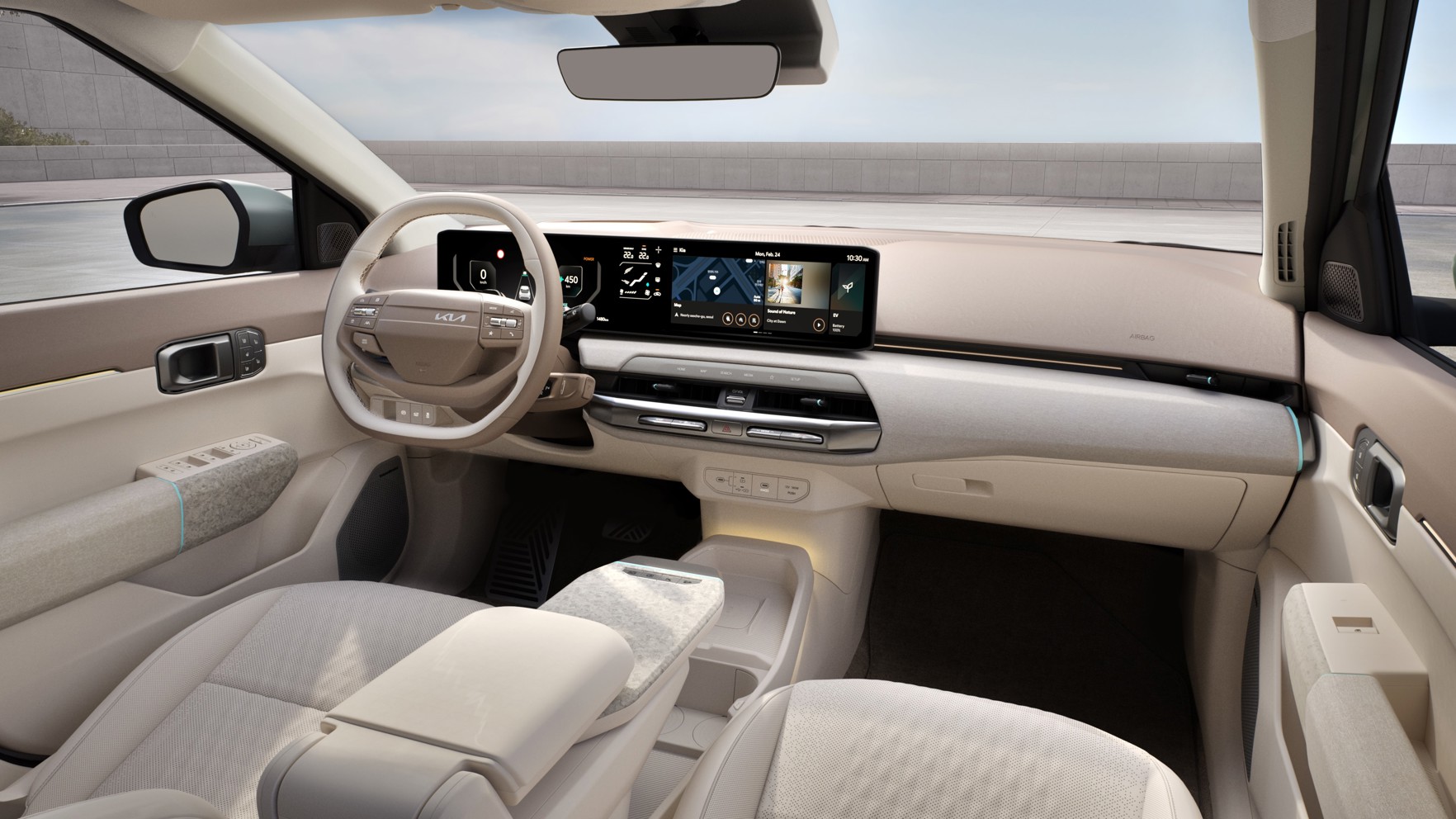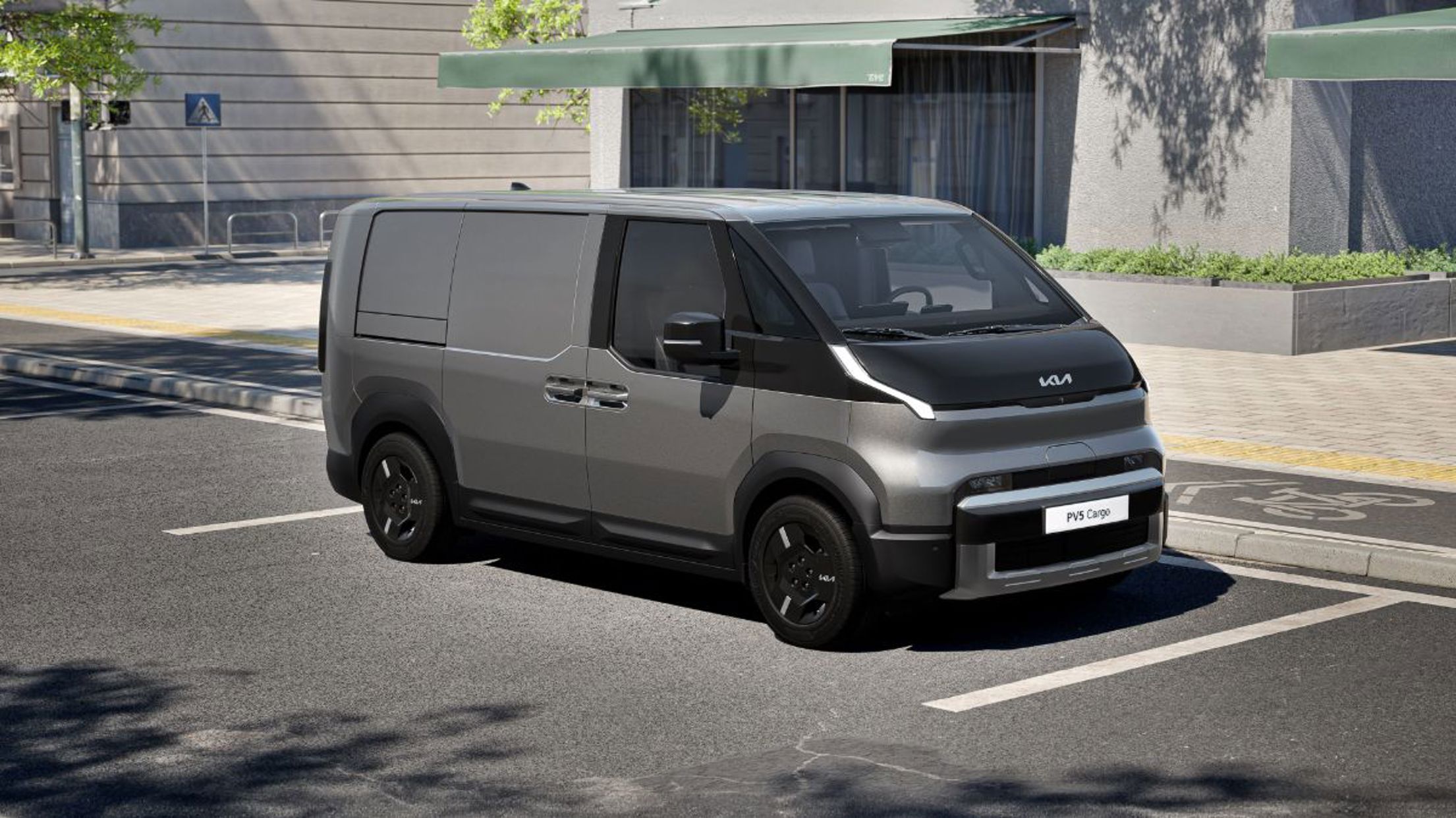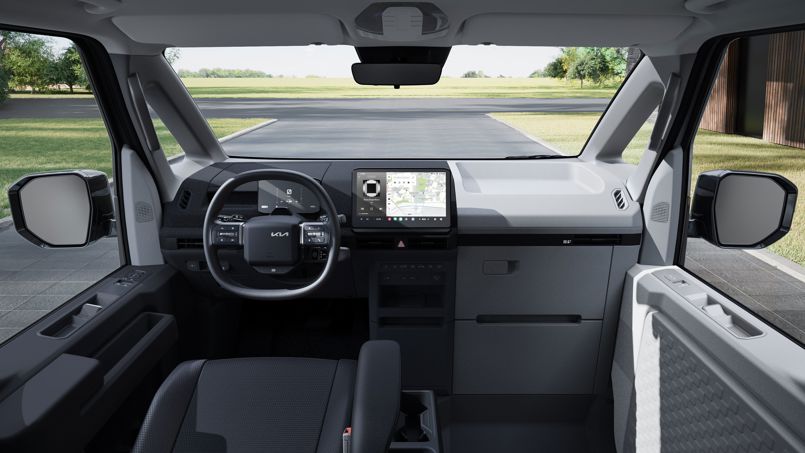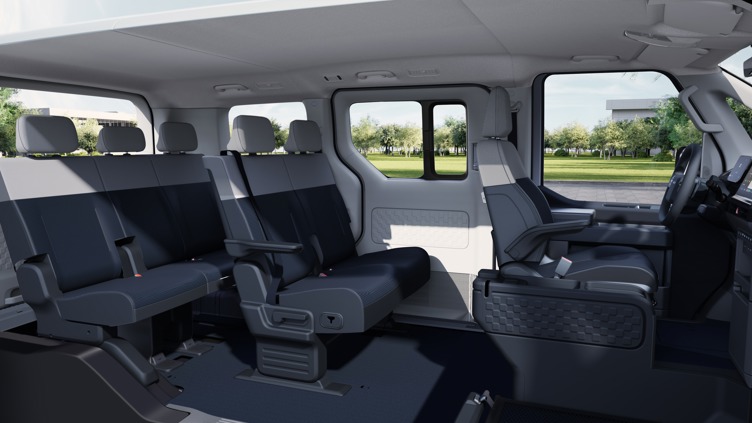Kia has shared more details about the EV4 sedan and hatch, and the PV5 van it revealed a week ago, as well as revealing the Concept EV2, the company’s smallest EV yet, at its 2025 EV Day in Tarragona, Spain.
Originally unveiled as a concept at Kia’s 2023 EV Day, the EV4 is available in both sedan (four-door) and hatchback (five-door) versions, which Kia says “expands consumer choice” in an EV market that has traditionally focused on SUVs.

The EV4 will offer two battery options: a 58.3 kWh standard battery and an 81.4 kWh long-range battery. Kia says it expects the long-range sedan model to have an impressive 630km WLTP range, while the standard sedan will offer 430km. The hatchback version with the long-range battery is projected to reach 590km on a full charge, while the standard hatchback will pack around 410km.
Both the sedan and hatch utilise a 150kW motor mounted on the front axle, with a 0-100 km/h time of 7.4 seconds for the standard car and 7.7 for the long-range variants.

Charging capabilities include 10-80 percent charging in 31 minutes on a DC fast charger, while the EV4 also features an 11kW on-board charger compatible with both single-phase and three-phase inputs.
Convenience features include Digital Key 2.0, i-Pedal 3.0 for customisable regenerative braking, and remote OTA (Over-the-Air) updates. The interior incorporates a 30-inch wide-screen display connected car Navigation Cockpit, as well as Highway Driving Assist 2 (HDA2) and other advanced driver-assistance systems.
Production of the EV4 sedan will take place at Kia’s Autoland Gwangmyeong EVO Plant in Korea, while the hatchback will be produced in Slovakia. Sales are scheduled to commence in Korea in March, followed by a European launch in the second half of the year, and subsequently in the United States.

There is no confirmation for New Zealand sales yet, but it would seem likely to be offered here.
The Kia PV5 all-electric van was first shown as a concept at the 2024 Consumer Electronics Show (CES) in Las Vegas and represents the first dedicated model in Kia’s Platform Beyond Vehicle (PBV) business strategy and is what Kia calls a “mid-sized Car Derived Van (CDV)” that provides “unprecedented flexibility and customisation ”by using an innovative modularisation concept.
The PV5 is available in Passenger, Cargo, and Chassis Cab configurations and is built on Kia’s E-GMP.S platform that Kia says enables flexible combinations of vehicle bodies, while the “Integrated Modular Architecture (IMA)” standardises essential components such as batteries and motors.

The PV5 Passenger features a three-row seat configuration, while the PV5 Cargo offers a maximum cargo space of 5.1 m³. The PV5 Chassis Cab is designed to support a diverse range of conversion configurations.
The PV5 offers a choice of 51.5 kWh or 71.2 kWh battery packs, with an additional 43.3 kWh LFP battery option for the PV5 Cargo. It is powered by a 120kW front-mounted electric motor producing 250Nm of torque.
Kia says that equipped with the 71.2 kWh battery, the PV5 Passenger achieves a range of up to 400km, and fast charging from 10% to 80% takes 30 minutes.

The PV5 features a 7-inch instrument cluster and a 12.9-inch navigation screen. It includes an Android Automotive OS-based infotainment system and supports over-the-air (OTA) updates.
Sales of the PV5 will begin in Korea and Europe in the second half of this year, followed by launches in other markets in 2026. No word on whether it is heading here, however.
“Kia remains committed to becoming the world’s leading EV brand and sustainable mobility solutions provider by enhancing the options and experiences we offer our customers,” said Kia President and CEO, Ho Sung Song.

“With models like the Kia EV4 and the vision shown in the Kia Concept EV2, we strive to democratise EV ownership, making the benefits of sustainable mobility solutions open to everyone.
The 2025 Kia EV Day marks the second event of its kind for the brand, and alongside the vehicles featured a new partnership with Samsung Electronics, highlighting SmartThings Pro – an optimised Internet of Things (IoT) system for PBVs that offers versatile plug & play services.

















